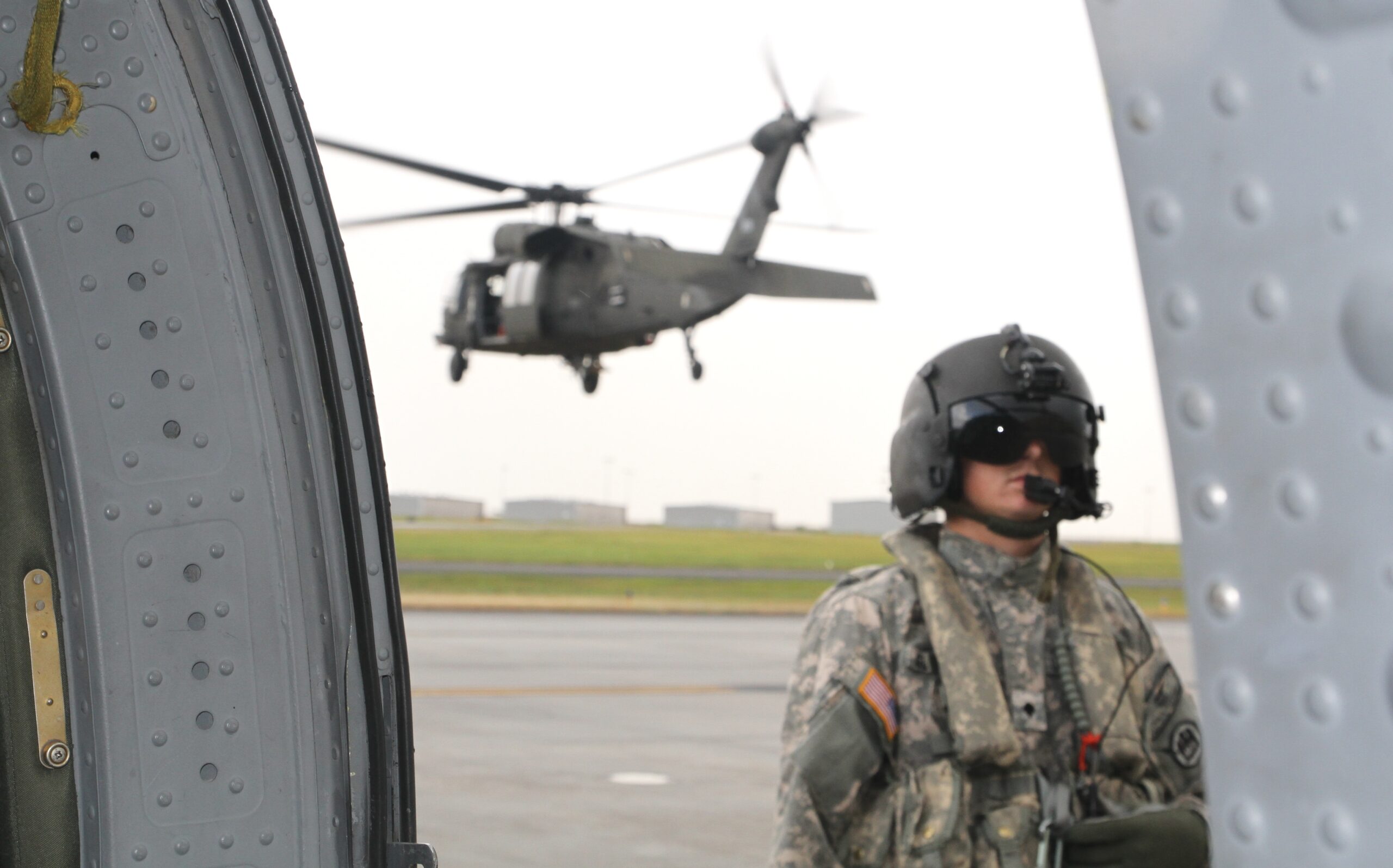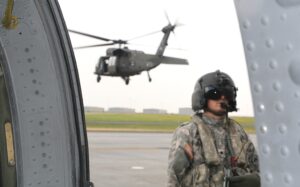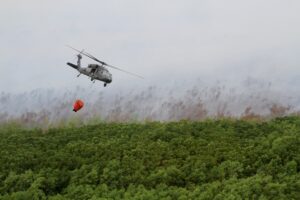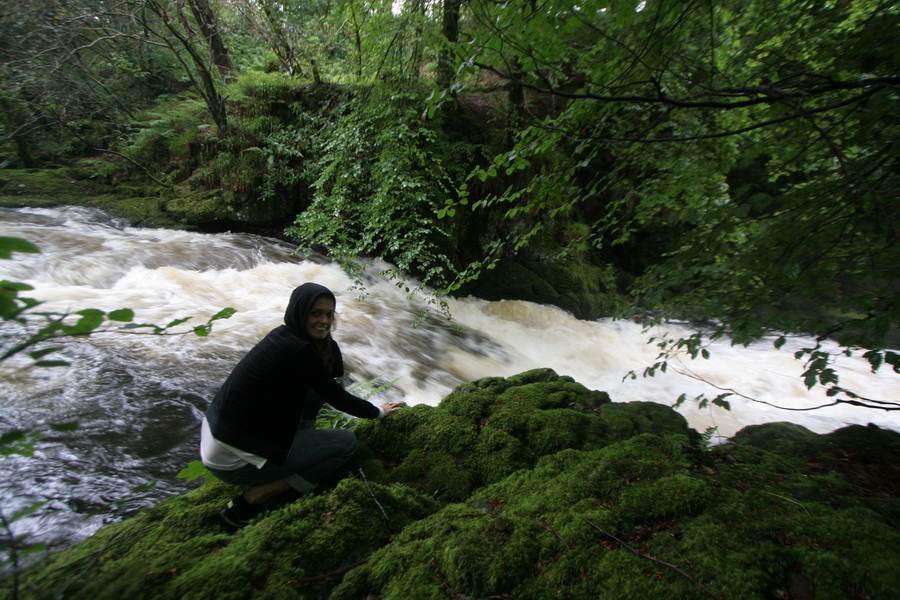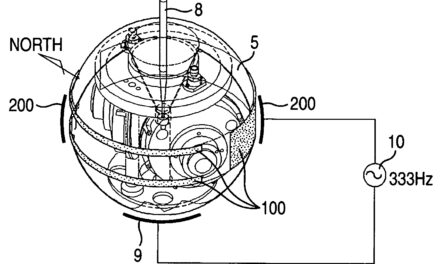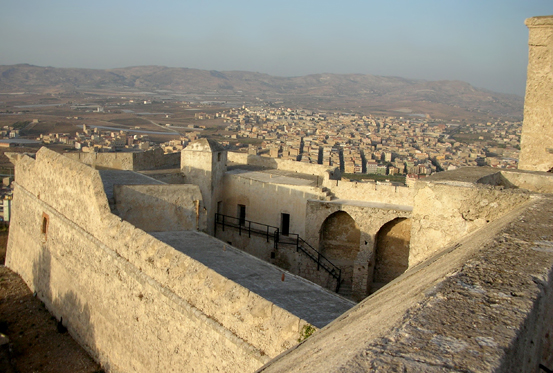If any bird can withstand torrential rains it’s the Black Hawk. During a tropical gulf storm—the meteorological definition of a tropical depression—that wet New Orleans three months ago for several days, the Louisiana Army National Guard awakened an enthusiastic parade of UH-60 Black Hawks. The military helicopters flew in one or two pairs, side by side, their long silver cat whiskers silently slicing through raindrops, as they dropped 900,000 gallons of water over a marshland refuge that had been torching for two days in spite of the storm.
A 600-gallon orange bucket tethered to each helicopter hung like pendulum from a grandfather’s clock. The harder it swung the more difficult it was to control the valves through which the water was released. The pilot lowered the helicopter so that the black bird was about thirty feet from the water. The bucket, weighted on one side, tipped over and water rushed in. Finally the helicopter rose over one hundred feet for the drop, releasing 5,000-pound loads in a splash and a spray.
The National Guard took questions from reporters, inviting them on aerial tours of the marshlands during the operation. After strapping us in its stomach, the helicopter lifted off from the unruffled landing strips at the Lake Front airport. Leaving the door open, young boys in clean uniforms signaled us to begin filming. With our cameras poking out like swan beaks, we shot footage of helicopters saving green trees and foliage from blankets of white smoke. Thankfully, our equipment survived the drenching rain.
As the mayor expressed his confidence in the operation during a council district meeting I was left bewildered—puzzled. If the tropical wave dumped six inches of rain over New Orleans in a matter of days was it necessary to call in the helicopters to carry out dozens of drops to stamp out the fire? As asthma patients gave a thumbs up and reporters enjoyed a free ride, many citizens criticized the mayor for the costly operation—under $10,000 an hour.
As soon as the small flames were put out a much larger marsh fire located on private property just west of the refuge began fouling the city. “At the end of the day, it’s going to take a hard, hard rain to put this out,” the mayor had said at a press conference as the birds took flight, struggling to extinguish the woody lands set ablaze.

